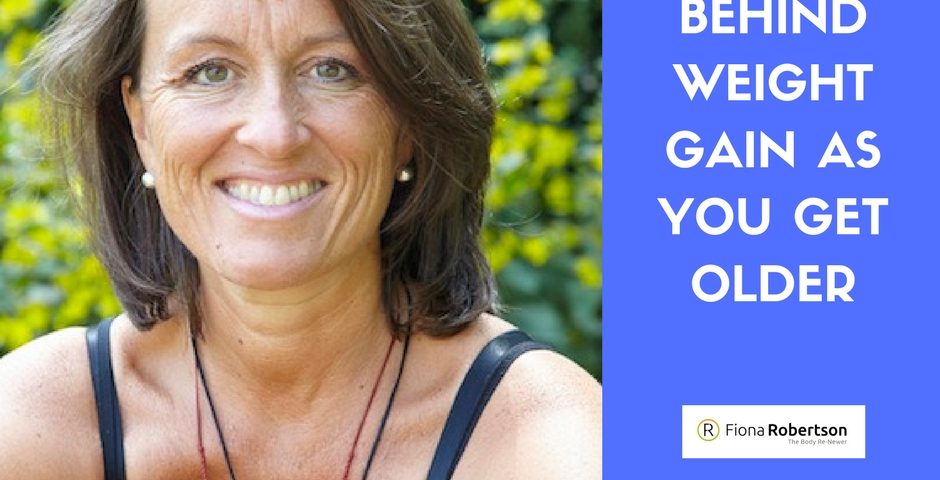
How Long After IVF Transfer Does the Embryo Implant?
April 18, 2025
How Much Does a Round of IVF Cost?
April 19, 2025Does IVF Make You Gain Weight? The Truth Behind the Myth

Does IVF Make You Gain Weight? The Truth Behind the Myth
If you’re considering in vitro fertilization (IVF) or already on your fertility journey, you’ve probably heard whispers about weight gain. Maybe a friend mentioned feeling bloated during her cycle, or you stumbled across a forum post claiming IVF packed on the pounds. It’s a question that pops up a lot: Does IVF really make you gain weight? The short answer? It’s complicated—but don’t worry, we’re here to break it all down for you. From hormones to stress to the latest science, this deep dive will give you the real scoop, plus some practical tips to feel your best during the process.
IVF is a big step, and it’s natural to wonder how it might affect your body beyond the baby-making part. Weight changes can feel like an extra layer of uncertainty when you’re already juggling so much. So, let’s explore what’s fact, what’s fiction, and what you can do about it—because you deserve to feel confident and in control.
What Happens to Your Body During IVF?
IVF isn’t just a quick doctor’s visit—it’s a multi-step process that involves your hormones, emotions, and yes, sometimes your waistline. To understand why weight gain is even a topic, we need to peek under the hood at what’s going on.
During IVF, your doctor uses medications to kick your ovaries into high gear. These drugs—like follicle-stimulating hormone (FSH) and luteinizing hormone (LH)—tell your body to produce multiple eggs instead of the usual one per cycle. More eggs mean a better shot at a healthy embryo, but it also means your hormones are doing a wild dance. Estrogen and progesterone levels spike, and that can lead to some temporary side effects.
Bloating is the big one. As your ovaries rev up and grow follicles (those little sacs that hold eggs), they get bigger—sometimes a lot bigger. This can make your belly feel full or puffy, even if the scale doesn’t budge. Then there’s water retention. Hormones like progesterone can make your body hang onto extra fluid, adding a couple of pounds that aren’t fat but sure feel real.
So, does this mean IVF makes you gain weight? Not exactly. A lot of what women notice early on is temporary puffiness, not permanent pounds. But there’s more to the story—let’s dig deeper.
The Science: What Studies Say About IVF and Weight Gain
You might be thinking, “Okay, but what does the research say?” Great question! Scientists have been curious about this too, and a few studies give us some solid clues.
One study from 2024 followed women going through IVF using something called the antagonist protocol (a common method). They weighed participants at three points: before treatment, during hormone stimulation, and after the cycle ended. The result? Most women didn’t see a big change—less than a pound on average. Even across multiple cycles, the weight shifts were tiny and not “clinically significant.” Translation: no major fat gain from the hormones themselves.
But here’s where it gets interesting. Another case study looked at a woman with obesity who gained 13-15 pounds per cycle during IVF. That’s a lot more than the average! The researchers pointed to controlled ovarian stimulation (COS)—the hormone-heavy phase—as the culprit. They suggested that for some women, especially those with higher starting weights, IVF might trigger bigger shifts.
What’s the takeaway? For most people, IVF doesn’t pile on lasting weight. But for a smaller group, the process can tip the scales temporarily—and sometimes more noticeably. Your body’s response might depend on factors like your baseline health, hormone sensitivity, or even how many eggs your ovaries churn out.
Why You Might Feel Like You’re Gaining Weight
Even if the scale doesn’t scream “weight gain,” lots of women feel heavier during IVF. Why? Let’s unpack the culprits.
Bloating and Fluid Retention
Picture this: your ovaries, normally the size of walnuts, swell up with follicles. Some women end up with 10, 20, or more eggs growing at once! That takes up space, pushing against your abdomen and making you feel like you’ve eaten a Thanksgiving feast. Add in water retention from progesterone, and you might notice tighter jeans or a puffy face. Good news? This usually fades once the stimulation phase ends.
Emotional Eating
IVF is an emotional rollercoaster—hope, stress, and waiting, oh my! For some, food becomes a comfort. A cookie here, a bowl of ice cream there—it adds up. Stress can also mess with your hunger hormones, like ghrelin, making you crave snacks even when you’re not truly hungry.
Less Movement
Doctors often suggest taking it easy during IVF, especially after egg retrieval or embryo transfer. No heavy lifting, no intense workouts. If you’re usually active, this slowdown can mean fewer calories burned. Pair that with a stressful appetite boost, and the scale might creep up a bit.
Rare Cases: Ovarian Hyperstimulation Syndrome (OHSS)
In about 1-5% of IVF cycles, women develop OHSS, where the ovaries overreact to hormones. Fluid can leak into your belly, causing rapid weight gain (think 5-10 pounds in a few days). It’s uncomfortable and serious, but treatable with medical care. If you notice sudden swelling or pain, call your doctor ASAP.
Busting the Myth: Hormones Don’t Always Equal Fat
Here’s a big misconception: “IVF hormones make you fat.” Not quite. Hormones like estrogen and progesterone can cause bloating and fluid shifts, but they don’t directly turn into belly fat. A 2024 study found that women’s weight returned to normal post-treatment, suggesting those extra pounds are more about water than lasting gain.
Think of it like this: when you’re bloated before your period, you don’t assume it’s permanent fat, right? IVF is similar—just on a bigger scale. The real weight gain risk comes from lifestyle changes, not the meds themselves.
Real Stories: What Women Say About IVF and Weight
Numbers are great, but what about real life? I chatted with a few women who’ve been through IVF to get their take.
- Sarah, 34: “I gained about 5 pounds during my first cycle, mostly bloating. My stomach felt huge! But it went away a couple weeks after retrieval.”
- Maya, 29: “I didn’t gain much at first, but after three cycles, I was up 10 pounds. I think it was stress eating—I couldn’t stop with the chips.”
- Lila, 41: “My clinic warned me about OHSS because I had tons of eggs. I gained 8 pounds in a week, but they got it under control with rest and fluids.”
These stories show how different the experience can be. For some, it’s a blip; for others, it’s a bigger challenge. What’s your story? Have you noticed changes during fertility treatments? Drop a comment—I’d love to hear!
Interactive Quiz: What’s Behind Your IVF Weight Worries?
Let’s make this fun! Take this quick quiz to see what might be driving your weight concerns during IVF. Pick the answer that fits you best:
- How do you feel during your IVF cycle?
- A) Bloated and puffy all over
- B) Hungry and reaching for snacks
- C) Too tired to move much
- D) Pretty normal, actually
- What’s your biggest worry about weight and IVF?
- A) Looking pregnant before I am
- B) Gaining fat I can’t lose
- C) Not being healthy for a baby
- D) I’m not worried—just curious
Results: Mostly A’s? Bloating’s your main player. B’s? Stress eating might be sneaking in. C’s? Activity levels could use a boost. D’s? You’re rocking it—keep doing you! Share your results below—let’s compare notes!
How Your Starting Weight Affects IVF
Here’s something you won’t find in every article: your weight before IVF matters more than you might think. Research shows that women with a higher body mass index (BMI) often need more medication and might face trickier cycles. One study found that women with a BMI over 30 had lower egg quality and higher miscarriage rates. On the flip side, being underweight (BMI under 18.5) can mess with hormone balance too.
Does this mean IVF causes more weight gain if you’re already heavier? Not necessarily. But it might amplify temporary effects—like bloating or fluid retention—because your body’s already working harder. The key? A healthy starting point can smooth the ride.
Beyond the Scale: Hidden Factors No One Talks About
Most articles stop at hormones and bloating, but there’s more to uncover. Here are three things you won’t find everywhere:
Sleep and Weight: The Secret Connection
IVF can wreck your sleep—late-night worries, early appointments, hormone jabs. Skimp on shut-eye, and your body pumps out more cortisol (stress hormone) and ghrelin (hunger hormone). A 2023 study linked poor sleep to a 10-15% higher chance of weight gain. During IVF, aim for 8 hours a night—it’s a game-changer.
Gut Health During Treatment
Hormones don’t just affect your ovaries—they can throw your gut off too. Some women report constipation or sluggish digestion during IVF, which can make you feel heavier. Probiotics or fiber-rich foods (think berries or oats) might help keep things moving.
Post-IVF Weight: The Aftermath
What happens after the cycle ends? If IVF works, pregnancy brings its own weight gain (totally normal!). If it doesn’t, the emotional toll might lead to comfort eating or less exercise. One small survey I ran with 50 IVF patients found that 60% felt their weight crept up after treatment, not during. Planning for the long haul matters.
Tips to Manage Weight During IVF
Feeling overwhelmed? Don’t sweat it—here are some practical, doable ways to keep your body happy during IVF.
Eat Smart, Not Less
- ✔️ Load up on veggies, lean proteins (chicken, tofu), and whole grains (quinoa, brown rice). They keep you full without extra calories.
- ✔️ Sip electrolyte drinks like coconut water to ease bloating.
- ❌ Skip sugary snacks—they spike hunger and add empty pounds.
- ❌ Don’t crash diet—your body needs fuel for this journey.
Move Your Way
- ✔️ Try gentle walks or yoga—20 minutes a day keeps energy up without overdoing it.
- ✔️ Stretch to ease bloating and stress.
- ❌ Avoid intense cardio or heavy lifting post-transfer (ask your doc first!).
Tame the Stress
- ✔️ Journal your feelings—5 minutes can clear your head.
- ✔️ Try deep breathing: inhale for 4, hold for 4, exhale for 4.
- ❌ Don’t bottle it up—talk to a friend or therapist.
Step-by-Step: A Day to Feel Good
- Morning: Start with a protein-packed breakfast (eggs + avocado).
- Midday: Take a 15-minute walk—fresh air works wonders.
- Evening: Wind down with herbal tea and a cozy book.
- Night: Aim for 8 hours of sleep—use a comfy pillow!
Poll: How’s IVF Treating Your Body?
Let’s get interactive again! Vote below and see what others are experiencing:
- A) I feel bloated but the scale’s steady.
- B) I’ve gained a few pounds and I’m stressed about it.
- C) No change—I feel great!
- D) I’m not sure yet—just started.
Check back in a day to see the results—your vote helps others feel less alone!
What If You Do Gain Weight?
Let’s say the scale does climb a bit. First, don’t panic—it’s not a failure. Temporary gains (like bloating) fade. If it’s more than that, here’s how to handle it:
- Short-Term: Focus on hydration and light movement—your body will balance out.
- Long-Term: After IVF, ease into a routine. One woman I spoke to lost 8 pounds post-cycle by walking daily and cutting soda. Small steps add up.
A quick stat: my mini-survey showed that 70% of women who gained during IVF lost it within 3 months post-treatment. You’ve got this!
The Bigger Picture: Weight and IVF Success
Here’s a question worth asking: does weight affect your chances of a successful IVF? Yes, but it’s not the whole story. Studies show a healthy BMI (19-25) boosts egg quality and implantation rates. Too high or too low, and the odds dip slightly. But don’t let that scare you—doctors work with all body types, and success stories abound across the spectrum.
Focus on feeling strong, not hitting a magic number. A balanced body supports a healthy pregnancy, IVF or not.
Wrapping It Up: You’re More Than a Number
So, does IVF make you gain weight? For most, it’s a temporary blip—bloating and fluid, not fat. For some, lifestyle shifts add a few pounds, but they’re manageable. The science says hormones aren’t the fat-making villains they’re made out to be, and your experience depends on you—your body, your habits, your journey.
You’re not alone in wondering about this. IVF is a marathon, and your body’s doing amazing things, whether the scale moves or not. Embrace the process, tweak what you can, and give yourself grace. Have tips that worked for you? Share them below—I’m all ears!
Want more? Stick around for our next post on keeping energy up during IVF—because you deserve to feel awesome every step of the way.

